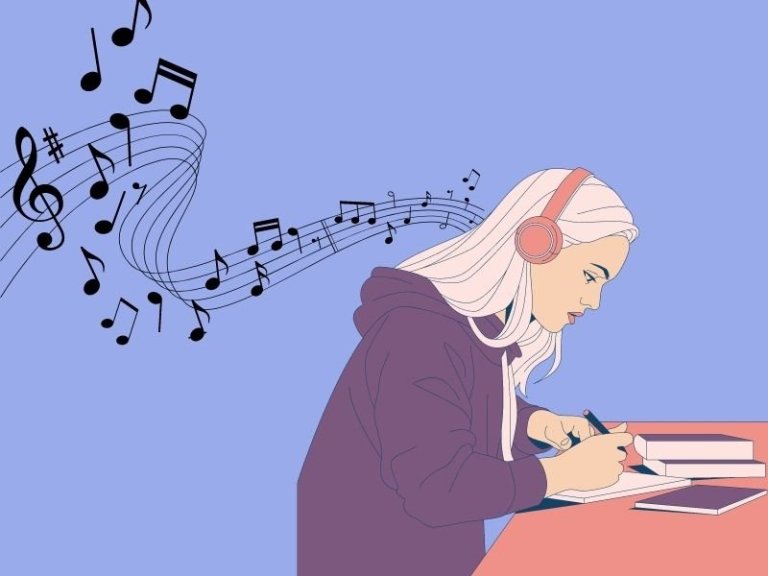Listening to music while studying is normal for many students. (In fact, I’m playing my favourite tunes while writing this article.) While most students will tell you that music is an essential component of their study sessions, there are still many people–teachers and parents in particular–who deem it an unnecessary distraction. To determine whether music contributes or detracts from your concentration and settle the debate that is raging in many classrooms once and for all, we need to explore the role music plays in cognitive performance.
Benefits of listening to music while studying
Improved focus
A study conducted in 2007 at the Stanford University School of Medicine revealed that music — classical music specifically — can help the brain absorb and interpret new information more easily. The evidence suggests that music can engage the brain in a way that trains it to pay better attention to events and make predictions about what might happen, sharpening reasoning skills. So, not only can music help you make sense of new material, but it can improve focus as well.
Improved mood
This may not be surprising to most, but listening to music can actually make you feel happier. Research has shown that listening to music triggers the release of dopamine in the brain, a neurotransmitter that promotes feelings of excitement and happiness. What does a good mood have to do with studying? Studies have shown that people may be better problem solvers when they are in a good mood as opposed to a negative or even neutral mood. Having a positive mindset to studying is not only important for surviving the IB workload, but it can actually also improve learning outcomes.
Improved memory and brain stimulation
According to Dr. Masha Godkin, professor in the Department of Marriage and Family Sciences at Northcentral University, music activates both the left and right brain at the same time, which can maximise learning and improve memory. Additionally, a study published in Frontiers in Aging Neuroscience found that listening to classical music helped older adults perform better on memory and processing tasks, with evidence leading researchers to believe that certain types of music can help boost memorization abilities and other cognitive functions. Music stimulates the brain similar to how exercise stimulates your body. In a way, listening to music is like giving your brain a cognitive “workout” that helps strengthen mental muscle.
Improved stress management
Most of us are all too familiar with the stress and anxiety that come from studying for tests. Listening to music can help you to relax and work more effectively if you’re feeling stressed. A study done by Cambridge University showed that not just classical music is beneficial. They discovered that hip-hop provides an uplifting effect on its listeners that can help them accept, manage and deal better with mental health issues.
Drawbacks of listening to music while studying
Less efficiency
Listening to music can also cause mental red herrings and decrease efficiency. Love a particular song? You may just find yourself abandoning the books and googling the artist’s early works. Have a song that reminds you of an epic ski trip? You’ll probably end up scrolling through photos for twenty minutes. Music evokes our emotions and memories and it’s not the most time effective to be processing our emotions while we’re processing complicated calculus.
Less working memory
Our working memory refers to our capacity to problem-solve, learn, and complete other cognitive tasks. A good working memory means you can process more material at once. However, research suggests that listening to music can reduce working memory capacity. If you already have difficulty processing multiple pieces of information at once, listening to music can make the process even more difficult.
Less reading comprehension
Learners find it harder to comprehend and absorb reading material when listening to certain types of music, such as fast, loud, or lyric-heavy music. Various studies have shown that students who listen to music while reading and writing tend to be less efficient and absorb less information than those who do not listen to music. Moreover, loud or “angry” music has negative effects on students’ reading comprehension and mood. This in turn causes them to absorb less.
Considering the multiple benefits and drawbacks of using music as a study tool, no side can claim a clear win in the “music while studying” debate. But one thing is certain – there is no way the Lofi hip-hop girl would get all that studying done without her music – and neither would I.
https://www.fnu.edu/benefits-studying-music/
https://www.healthline.com/health/does-music-help-you-study
https://www.ncbi.nlm.nih.gov/pmc/articles/PMC4197792/
By Elena, Grade 11

